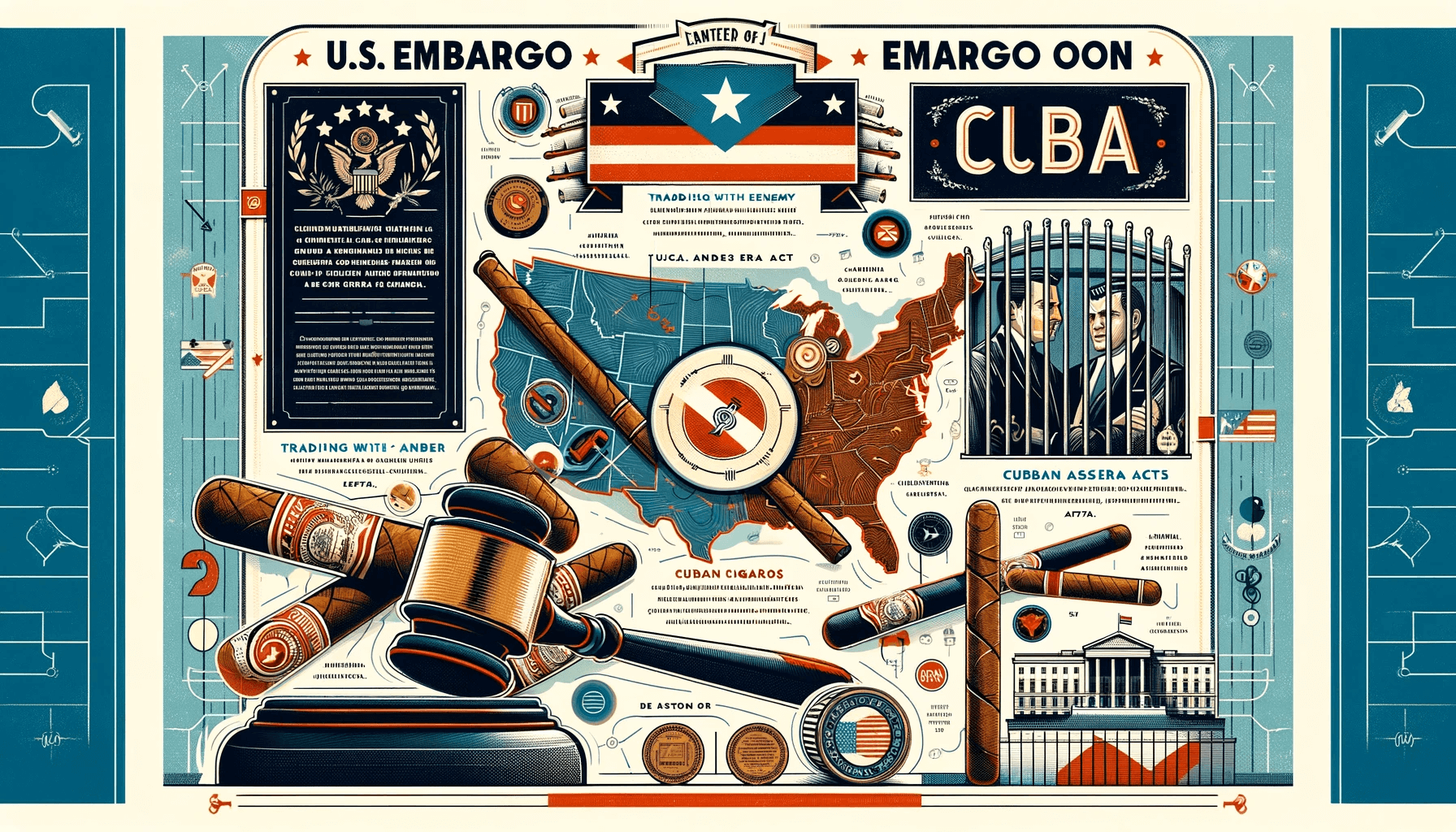In the tapestry of U.S. legal intricacies, the prohibition of Cuban cigars stands out as a curious and historically significant thread.
Introduction to the Cuban Cigar Embargo
Cuban cigars, renowned globally for their quality and craftsmanship, have been subject to a U.S. trade embargo for over half a century. This embargo is not just a matter of trade restrictions; it reflects a complex political and economic history between the United States and Cuba.
Historical Context of the Embargo
To understand the embargo’s roots, one must delve into the historical tensions between the U.S. and Cuba. The embargo dates back to the early 1960s, following Fidel Castro’s rise to power in Cuba. In response to Castro’s nationalization of American-owned businesses and alignment with the Soviet Union during the Cold War, the U.S. imposed an embargo on all trade with Cuba in 1962 under President John F. Kennedy.
The Embargo’s Legal Framework
The legal basis for the Cuban cigar embargo is grounded in several key pieces of legislation:
The Trading with the Enemy Act of 1917
This act grants the U.S. President the power to restrict trade with hostile countries during times of war or national emergency. It was the initial legal foundation for the embargo against Cuba.
The Foreign Assistance Act of 1961
This act extended the embargo to include financial transactions and aid, further isolating Cuba economically from the U.S.
The Cuban Assets Control Regulations of 1963
Implemented by the U.S. Treasury Department, these regulations formalized the embargo, explicitly including Cuban cigars in the list of prohibited items.
The Helms-Burton Act of 1996
This act strengthened and continued the embargo, making it more difficult for future administrations to lift it without congressional approval.
Why Focus on Cuban Cigars?
Cuban cigars became a symbolic target in the embargo for several reasons:
Economic Impact
Cuba’s cigar industry was a significant source of revenue for the Castro regime. Targeting this industry was seen as a way to financially weaken the Cuban government.
Symbolic Value
Cuban cigars, known for their excellence, became a symbol of the extravagance and elitism that the U.S. sought to challenge in the Castro regime.
Political Statement
Prohibiting Cuban cigars served as a clear political statement against communism and the Soviet influence in the Western Hemisphere during the Cold War era.
The Impact of the Embargo on U.S. Consumers and Businesses
The embargo on Cuban cigars has had various implications:
Limited Access for Consumers
U.S. consumers have limited access to authentic Cuban cigars, often resorting to purchasing them in foreign countries or through the black market.
Market Alternatives
The embargo paved the way for alternative cigar markets to flourish in countries like Nicaragua and the Dominican Republic, which now produce cigars that rival Cuban ones in quality.
Legal Implications
U.S. citizens found in possession of Cuban cigars may face legal penalties, including fines and confiscation of the cigars.
The Changing Political Landscape
Recent years have seen shifts in U.S.-Cuba relations, with some relaxations in the embargo under the Obama administration, allowing limited import of Cuban cigars for personal use. However, these relaxations were largely rolled back under subsequent administrations, reaffirming the embargo’s complexity and its deep entanglement in U.S.-Cuba relations.
Conclusion
In conclusion, the U.S. embargo on Cuban cigars is a multifaceted issue rooted in historical, political, and economic contexts. It reflects the longstanding tensions between the U.S. and Cuba and serves as a symbol of the broader ideological conflicts of the Cold War era. While there have been fluctuations in the enforcement and strictness of the embargo, Cuban cigars remain largely illegal in the U.S., emblematic of the enduring complexities of international relations and trade policies.









Leave a Reply